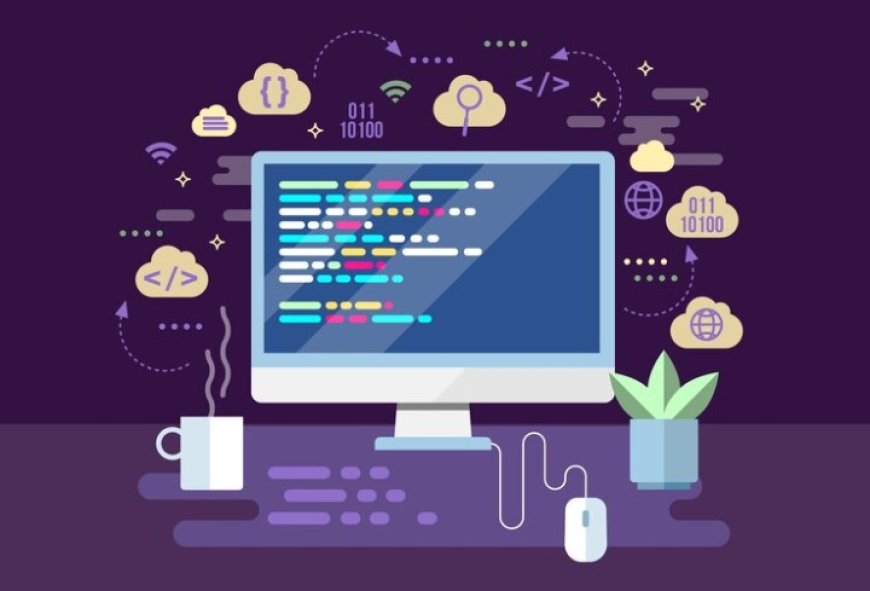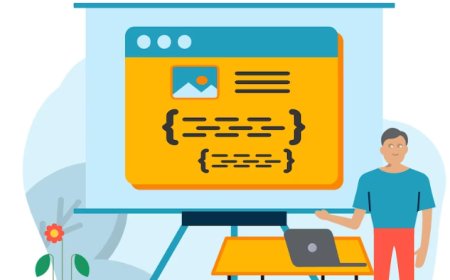Python - An Introduction to Programming and Beyond
The world of Python - from the basics to advanced concepts. Learn Python's versatility and applications in programming, data science, and more. Start your journey today!

Python is a widely loved programming language known for its simplicity and flexibility. It's like a toolbox that can be used for many tasks! People all over the world enjoy using Python because it's easy to understand and write.
Imagine Python like a friendly guide that helps you build things on the computer. You can make websites, create games, analyze data, and even teach computers to think! It's not just for one thing; it's for many.
For example, in making software, Python is a go-to choice. It's like building blocks that make putting together a program easier. In data science, Python helps make sense of lots of information, helping us find answers and make decisions.
So, whether you're into building cool apps or exploring data, Python is your friend. Its popularity comes from being useful in so many different areas. It's like a super tool in the world of programming!
Challenges of Learning Python
One common challenge is getting used to the way Python wants you to write things. Python is very particular about how you indent your code, meaning the spaces and tabs at the beginning of each line. It can be a bit confusing at first, but it's essential to make your code work properly.
Another challenge is understanding the error messages that Python gives you when something goes wrong. These messages might look like a secret code, but they're actually clues about what's gone awry in your code. Learning to decipher these messages is a big part of becoming a Python pro.
It can also be tough when you're trying to figure out how to do something specific, like making a game or a website. Sometimes, you might not know where to start, and that's completely normal. It's like trying to cook a new dish without a recipe – you need to find the right ingredients (in this case, Python commands) and know how to put them together.
But here's the good news – everyone starts somewhere, and these challenges are just part of the learning process. You'll make mistakes, and that's okay. In fact, making mistakes is one of the best ways to learn. So, don't get discouraged if Python seems a bit complicated at first. With practice and patience, you'll get the hang of it and become a Python pro in no time!
The key concepts in Python
Python Syntax and Structure:
Python is like a language, and just like English or any other language, it has rules. These rules are called syntax. In Python, you need to use the right words (keywords), and you need to put them in the right order. Imagine Python as a recipe – you have to follow the steps in the right order to make a delicious dish. If you don't follow the recipe (syntax) correctly, Python might get confused and give you an error.
Data Types, Variables, and Operations:
In Python, you can think of data as different ingredients. Just like you have eggs, flour, and sugar in a recipe, Python has different types of data like numbers, text, and lists. Variables are like containers where you can store these ingredients. For example, you can have a variable called 'eggs' and put the number 2 in it. Then, you can use these variables to do things, like adding two numbers together or making sentences with text.
Control Structures (if Statements, Loops):
Control structures are like instructions in a recipe that tell you what to do under certain conditions. If statements are like deciding whether to use salt in a dish based on whether you want it salty or not. Loops are like repeating steps, like stirring a soup until it's well-cooked. In Python, if statements help you make decisions in your code, and loops help you repeat certain actions as many times as you need.
Functions and Modules:
Functions are like mini-recipes. They are small blocks of code that you can use over and over again. For example, if you have a set of instructions to make a perfect cup of coffee, you can put those instructions in a 'coffee-making' function. Then, whenever you want a cup of coffee, you just use that function instead of writing the instructions all over again. Modules, on the other hand, are like collections of functions and other things that people have made and shared. You can think of them as cookbooks full of recipes you can use in your own recipes.
File Handling and Input/Output:
File handling is like dealing with different recipes in your kitchen. You can open a recipe (file), read it to see what ingredients and steps it has, write notes on it, or create a new recipe (file). Input/output is like taking ingredients from your kitchen and sharing them with others. In Python, you can read from files (like opening a recipe book) and write to files (like creating a new recipe to share with friends).
Exception Handling:
Think of exception handling as being prepared for unexpected situations while cooking. For instance, if you are making a cake, and you realize you ran out of sugar, you need a plan B. In Python, exceptions are like these unexpected situations – things that might go wrong, like dividing a number by zero. Exception handling helps you deal with these situations so that your program doesn't crash.
Object-Oriented Programming (OOP) Principles:
Object-oriented programming is like building with Lego blocks. Each Lego block is an object with its own properties and abilities. You can connect them and create more complex structures. In Python, you can create objects that have attributes (like color, size) and methods (like functions that the object can perform). OOP helps you organize your code and build more complex programs.
These key concepts are the foundation of Python, and understanding them will help you become a better Python chef. Just like cooking, practice is the key to becoming a great Python programmer. So, don't worry if you find some of these concepts a bit challenging at first. With time and practice, you'll become a Python pro!
The Basics - Advanced Python Concepts
Once you've grasped the basics of Python, you can dive into more advanced concepts that allow you to do some really cool stuff. It's like going from making simple dishes to becoming a master chef. Let's explore these advanced Python concepts:
-
Data Structures: Think of data structures like different ways to organize your ingredients. Python offers lists, dictionaries, and sets, which are like special containers for your data. You can use them to manage and access information efficiently.
-
Advanced OOP: Building on the object-oriented programming we discussed earlier, you can create more complex and interconnected objects. It's like using Lego blocks to build intricate structures, making your code more organized and powerful.
-
External Libraries and Frameworks: Just as you can use recipe books (modules), you can expand your collection with external libraries. These are like super-specialized recipe books for various tasks. Whether it's data analysis, web development, or scientific computing, there's a library for almost everything, and they save you a lot of time.
-
Web Development with Python: Python is not just for the kitchen; it can also build websites. Libraries like Django and Flask are like magic tools for creating web applications. You can serve up websites, create interactive features, and even store data.
-
Data Science and Machine Learning: Python is the go-to choice for data scientists. You can use libraries like Pandas for data manipulation and Scikit-Learn for machine learning. It's like having superpowers for understanding data and making predictions.
-
Automation and Scripting: Python is excellent for automating repetitive tasks. You can write scripts to handle file management, automate software testing, or even control IoT devices. It's like having a personal assistant to do the boring stuff for you.
These advanced concepts might seem challenging at first, but remember, it's like moving from simple recipes to more complex ones. The more you practice and experiment, the better you become. Just like a seasoned chef, you'll start creating impressive Python programs that can do amazing things. So, don't be afraid to explore these advanced concepts and take your Python skills to the next level. It's all about having fun and creating useful things with code.
Real-World Applications of Python
Python isn't just for learning and coding in theory; it's used in many real-world situations. Let's take a look at some everyday examples:
-
Web Development: Python is behind the websites you visit. Popular web frameworks like Django and Flask use Python. So, when you're scrolling through social media, shopping online, or reading news, Python is working behind the scenes.
-
Data Analysis: Ever wondered how companies like Netflix recommend shows to you? Python helps them analyze your viewing habits and make recommendations. It's also used in finance to predict stock market trends and by scientists to study climate change.
-
Artificial Intelligence (AI): Python plays a crucial role in AI development. AI chatbots that help you with customer service or virtual assistants like Siri and Alexa use Python to understand and respond to your queries.
-
Machine Learning: If you've ever shopped online and seen product recommendations based on your past purchases, that's machine learning in action, and Python is often used to create and train these recommendation algorithms.
-
Game Development: Your favorite video games might have been developed using Python. Python can be used to create game engines and design gameplay elements.
-
Cybersecurity: Python helps security experts protect your digital world. They use Python to detect and respond to cyber threats, ensuring your data stays safe.
-
Internet of Things (IoT): In a world filled with smart devices, Python helps connect and control them. Whether it's your smart thermostat or a fitness tracker, Python can be involved.
-
Robotics: Robots aren't just science fiction; they are used in industries like manufacturing, healthcare, and space exploration. Python is often the language that powers the brains of these robots.
Learning Python is like a journey, and you've taken the first steps. You've learned the basics, and that's fantastic! But remember, it's just the beginning. Keep practicing, try new things, and explore more. Python is like a Swiss Army knife for programming. It can be used in many different jobs, from web development to data analysis. So, keep going, and you'll see how handy Python can be in the real world. It's a skill that can open doors in various industries, making it a valuable tool for your future adventures. Happy coding!





































